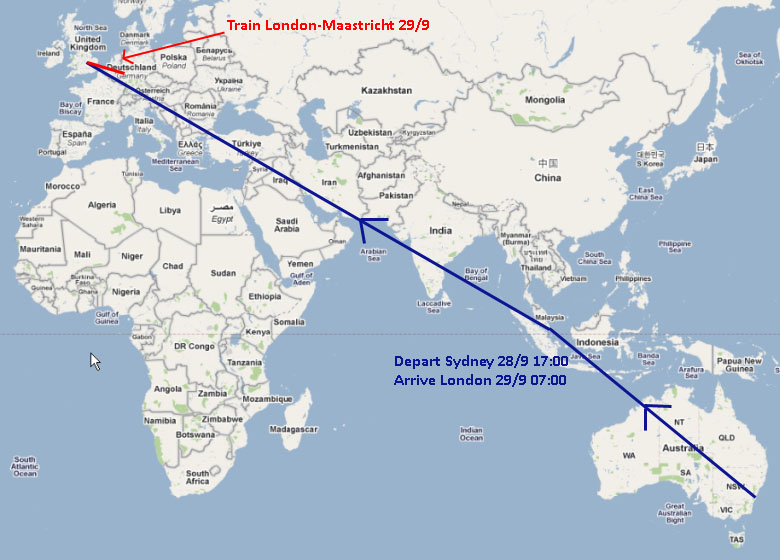It is a public holiday in Australia today for some reason and I had to…
Where’s bill today?
No blog today as I am travelling to the lands of austerity. Normal service will resume on Thursday (probably).
I am flying late Tuesday and will be travelling most of Wednesday. I am flying to London then catching a train to Maastricht because I want to end up in London and this was the best option for myself and my travelling partner.
I am off to Europe for work. I am visiting Maastricht University where CofFEE-Europe, a sibling of my research centre at the University of Newcastle is located. My sometime co-author, Joan Muysken is a full professor there and we have a lot of work planned.
I am then off to London for 3 days around mid-October for some meetings and to trawl the record shops (in between work of-course)!
If there is anything left of the economy or the people by the time I get there I will report back (-:
I will not be in contact with my servers much in the next 18 hours or so and as a result moderation of any comments will be delayed. If you post a comment that has an external link then it will always be moderated. I will be able to approve such comments during the stopover in Singapore and later when I get to London. So patience is the key! Thanks.

Happy travels and trails .
Pity you haven’t got time to pop up to Manchester and talk some sense at the Labour party conference. They badly need it.
Bill,
I’ve posted a question to my newly elected member of parliament Andrew Leigh about MMT. He says he finds your work interesting, I hope in a good way:)
http://www.andrewleigh.com/blog/?p=21#comment-7
Maybe this democracy thingy does kinda work.
Anyway, didn’t have a hart to ask him what he thinks about a job guarantee scheme yet, but it’s coming.
Do you think he’d be open minded to MMT stuff? Also from your experience who in the federal parliament has the best grasp of how monetary theory works? Recently I’ve read Latham’s diaries, and while I think he was very progressive on most issues, when it comes to monetary theory he was pretty much old school. Now the smart folk, i.e Keating etc, surely they would have heard about MMT yet they never adopted it, or publically stated any views on it to my knowledge. Why is the MMT so difficult to sell even to the elite? Could it simply be part of one’s ingrained political outlook precluding them from rationally examining the merits of MMT. I kind of clicked into it after a few months of reading your blog, but I admit it didn’t come naturally.
Living as I do in the North East of England, I’d like to say it is an honour to be within 300 miles of Bill. I am sure the sentiment is mutual (ho, ho).
Did everyone see Martin Wolfe’s FT column of 9/26/10.
http://blogs.ft.com/martin-wolf-exchange/2010/09/26/we-can-only-cut-debt-by-borrowing/
Frank, what is particularly significant about the Wolfe column is this:
“Austerians” was coined by Rob Parenteau and is pretty much confined to MMT-related circles. Wolfe doesn’t offer attribution, but I’d say that this is a pretty clear tip off that he is familiar with MMT sources.
This is straight up MMT. Wolfe goes on in the article to combine the national accounting identity/sectoral balance approach with a Minskian analysis of private debt, also in the MMT vein.
The last mile is closing. Good news.
But it would also be nice to see attribution unless Wolfe hit on this independently. He could at least credit the late UK Treasury “wise man” Wynne Godley, whose work he must know.